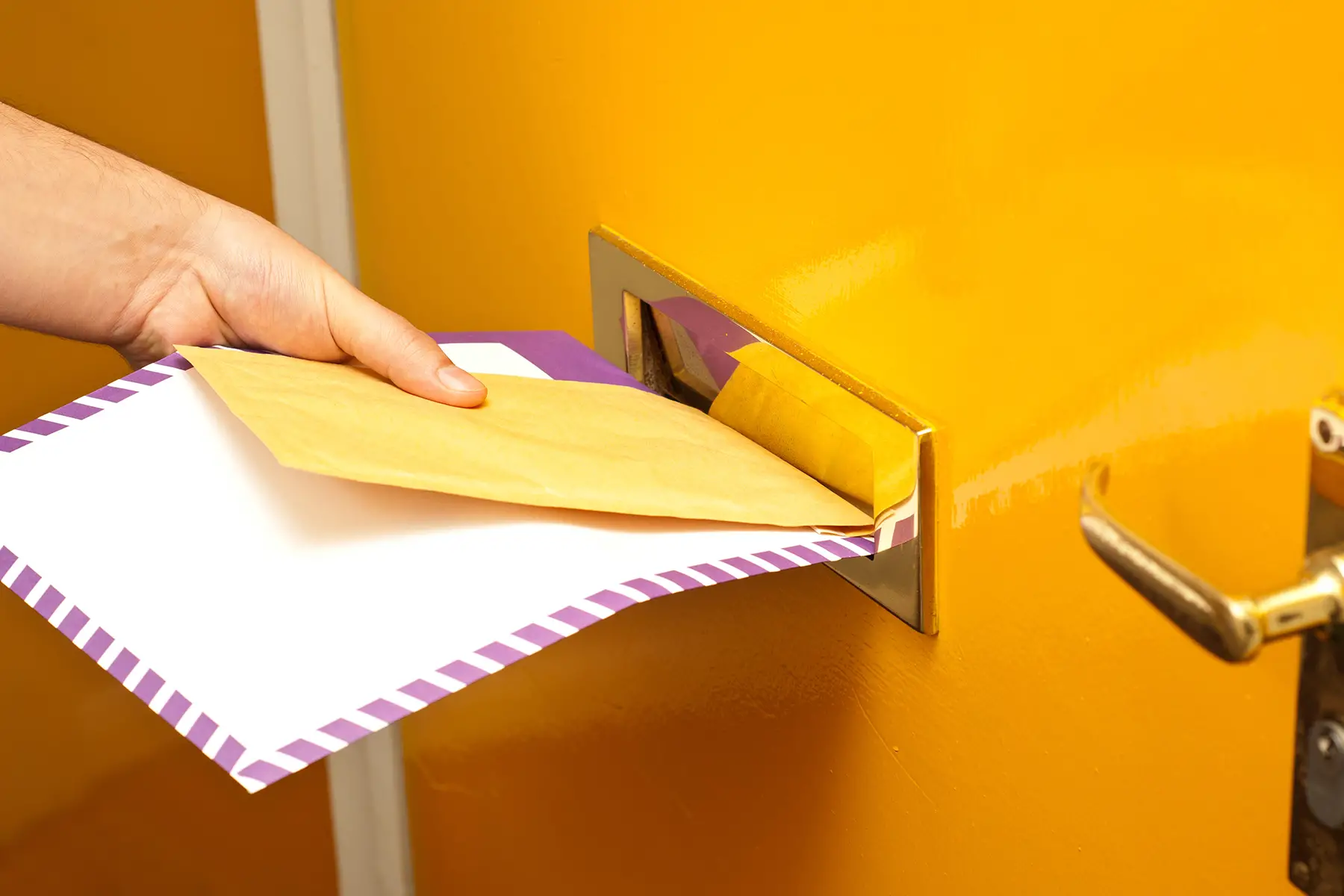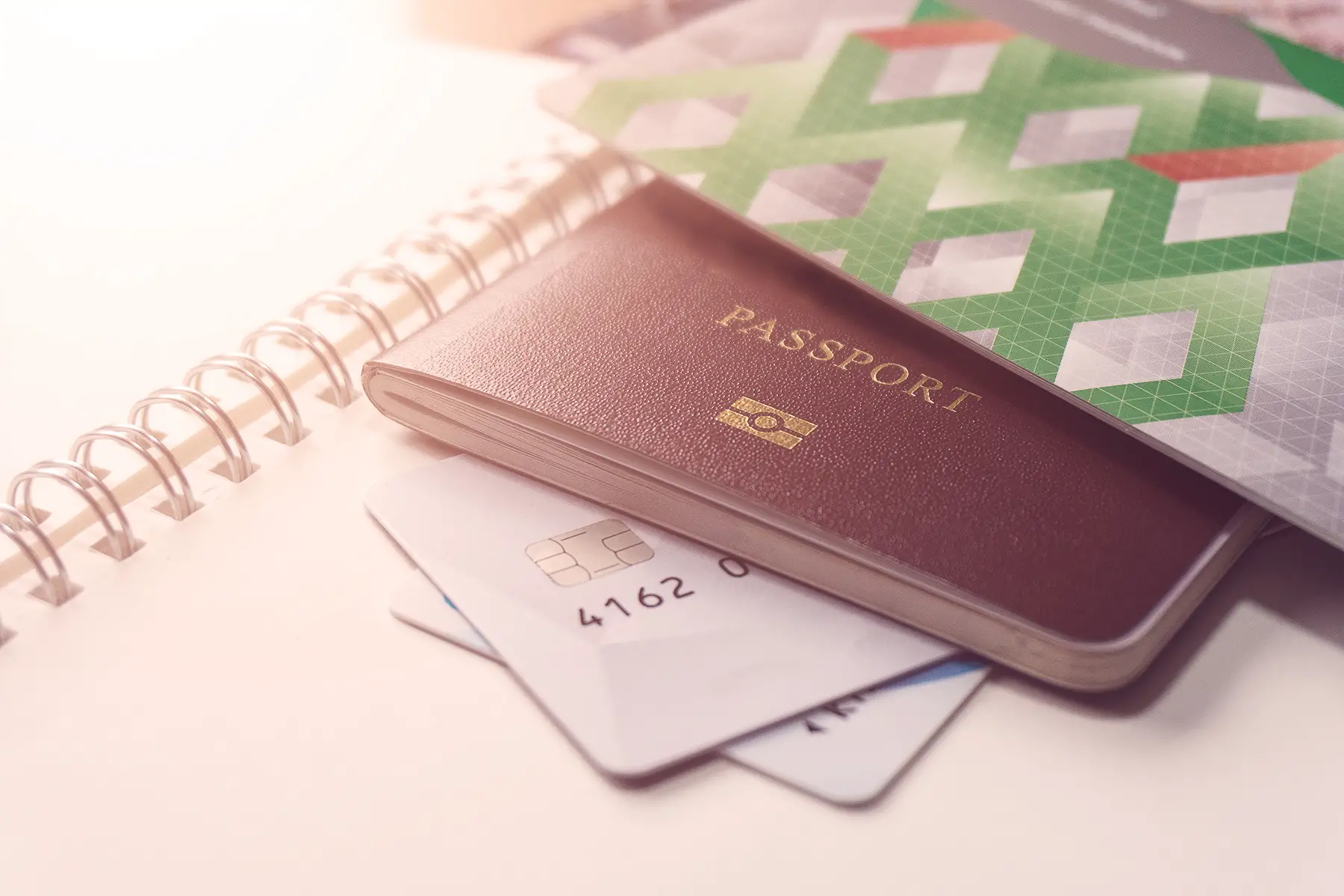When the time comes to leave your rental and move to a new home, the to-do list gets quite long. Follow our 10-step move out checklist to keep your sanity – and deposit:
- 1. Give notice to the landlord
- 2. Hire movers
- 3. Forward your mail
- 4. Give your new address to government agencies
- 5. Inform your utilities and insurance providers
- 6. Cancel all subscriptions
- 7. Your family members and pets are moving too
- 8. Schedule a pre-inspection
- 9. Fix and clean the place
- 10. Check out!
1. Give notice to the landlord
Whether you’re renting a house, apartment or furnished property, the first thing on your moving out checklist is to inform your landlord or rental agency. There are three things you have to keep in mind:
- the notice period
- the minimum initial period of residence
- the legal notice format
The notice period
The notice period depends on your rental agreement, but also on housing laws. Some landlords or agencies may try to finagle a notice delay that is in fact not legal. Most of the time, then they can’t enforce it even if you’ve signed the contract.
In France, for example, the notice period may be one or three months, depending in what zone you live. In Paris, because of the high market demand and traditional abusive practices, the law is on your side and you only need to give one month notice. But in other regions of France and many other countries, the law also states that you can reduce a three months notice to one month if you have a valid reason for moving, such as unemployment or work-related relocation.
A quick tip: if you can’t get out of your notice period, ask the landlord or agency whether they’ll let you off the hook if you bring in a new tenant. What they care about, after all, is just having the rent paid.
One more important point. Do not assume you don’t need to send notice if you want to move out at the end of your lease. Some leases renew automatically! And in some countries, such as Belgium, your landlord can greatly penalize you for turning your notice in too late, even when your lease is reaching expiration. You can be charged as many as three more months of rent.
The minimum initial residence period
Check your contract for this very important point as well. Some rental agreements include an initial period of residence of six months to a year before you can move out (or, really, stop paying rent). After this initial period, a tenant can give their notice without penalty. These initial periods of residence can sometimes be broken by clauses of force majeure, such as unemployment, separation or work relocation.

How do you send your notice?
In most countries, you will have to give your notice in writing. If not, we highly advise you to do so anyway – just to protect yourself legally should any disagreement arise. In certain countries, such as France, you have to mail your notice via registered mail. In general, again, this is a good idea anywhere: you will have proof your notice was received.
For all of these matters and more, check the fine print in your contract, and also make sure to look into the official laws and regulations. If you need help and things are getting hairy, you can get assistance from a lawyer. But there are probably also local non-profit organizations that can help you figure out exactly what your rights are – Google is your friend.
2. Hire movers
One of the first items on your moving out checklist is hiring a moving company. This is definitely not something you keep to the last minute, as many movers are booked weeks or even months ahead. Shop around for the right prices and services by asking for recommendations. Many cities have Facebook expat groups that are mines of information, with members who are happy to point you to the right providers.

Moving companies can come to your home to estimate the size of your move. They’ll also provide you with packing supplies. Make sure everything is packed on moving day. We advise you to number your boxes and keep a quick inventory of what’s in each of them. Unless you want the full monty, and pay extra for the movers to pack your belongings while you sit back and have a cocktail.
3. Forward your mail
Get your mail forwarded by the postal service
This sounds like an obvious item to add to your moving out checklist. But what you may not know is that local postal services sometimes take ages to process mail forwarding requests. It can take weeks or even months (we don’t mean to always point the finger at France, but…) The earlier you inform the post of your move, the safer your mail will be.
Mail forwarding service is rarely free, and even more rarely forever. Most often, you will get your mail sent to your new address for six to 12 months. If you’re moving out of the country, you may be able to get your mail forwarded internationally, but it won’t be cheap. Check your postal service’s website.

Change your address
In addition to forwarding your mail, you should change your address with just about everyone, including:
- government agencies
- utilities, television/internet and mobile phone providers
- banks, credit cards and other financial institutions
- healthcare providers
- insurance companies (including home contents, but also health insurance, car, life… etc)
And since you’re at it, why not also change your address with all of your accounts, in real life or online – even on your favorite shopping websites? Once it’s done, you’re ready for your new life.
All of this brings us to the next couple of items on your moving out checklist:
4. Give your new address to government agencies
There are many government agencies that need to know where you live – however unpleasant the thought may be for some.
Inform the municipality of your move
In some countries, such as the Netherlands, registering with the local government of your new home is mandatory. It can actually be quite handy as the municipality will share that address with other agencies and even service providers, dramatically reducing your workload. It’s particularly important in countries such as Belgium, where the commune issues you a local identification card.
If you move within the same country, often you’ll only have to register with the new town hall or council for the change to be official. But if you’re moving away for good, you must deregister from your current address. You don’t want to keep paying those local taxes one day longer than needed, do you?
Let the tax office know where your new digs are
The national and local tax offices need to know where you live, for obvious reasons. However, you’ll also benefit from informing them of your move as soon as possible, such as gaining access to certain benefits or owing lower local or refuse taxes. Depending on the country, you may get a refund on the current year’s balance of local taxes at your old address.
Immigration must know where to find you
If one administration gets nervous about your whereabouts, it’s immigration. Make sure you inform them as soon as possible of your new address and get your visas, permits and applications transferred. This may have an impact on pending paperwork or appointments when the immigration services have local agencies.

Get your IDs updated
You may have a national ID card in your country of residence in addition to your visa or permit. Inform the administration so your ID can reflect your new address. In addition, in order to stay within the law, you should probably also contact your embassy or consulate. Getting your IDs from your country of citizenship updated, such as your passport, is important.
Change your car’s address
You are moving away, and so is your vehicle. The administration in charge of your car’s registration needs to know where it’s going too. Especially as, in some countries, your change of address may also involve a change of license plates. You should also of course inform your car insurance company.
5. Inform your utilities and insurance providers
Disconnect or transfer your utilities
You will probably remember to get your electric, gas and water disconnected or moved to your new address. But be aware: in some countries or with some companies, you may not be allowed to get them disconnected if you are still within the first year of your contract – especially internet/television providers. Most of the time, though, you can get the contracts transferred to your new home. And if the company can’t provide the service at your new address, you should be able to get the contract terminated. Some will give you grief. As usual, make sure to read the fine print in your contract.
Cancel or transfer your insurance
You may have a home contents insurance contract – it’s mandatory in certain countries, such as France. Remember to cancel it if you move out of the country, or transfer it to your new home if you’re moving within the same borders.
Don’t forget to inform all your insurance providers of your move. Some insurance companies will consider you uninsured if they have the wrong address on file. This is because premiums may vary depending on your location. For example, your car insurance may be cheaper if you move to a safer neighborhood.
6. Cancel all subscriptions
The forwarding service of the post usually does not forward newspapers and magazines. Make sure to cancel your subscriptions, or change your address with your favorite publications to ensure you keep receiving them in your new home.

But don’t forget your other subscriptions and memberships, such as:
- cleaning or gardening services
- pet walking or baby sitting services
- boiler or appliance maintenance contracts
- sports clubs or gyms
7. Your family members and pets are moving too
This may sound obvious, but by now your moving out checklist is so long, you may well forget. Remember for example to inform your kids’ daycare or school that you’re moving, even if you’re staying in the neighborhood. Just like yours, their extra-curricular activities also keep your address on file, and it’s best if they have the right one.

As for pets, you may need to deregister them with the vet, or already register with the new one if they have waiting lists. Your cat or dog also have passports, which need to be kept up to date. And most importantly: update the records of their identification chip! Especially during a move, when your animals may get nervous and lost.
8. Schedule a pre-inspection
It’s a good idea to add to your checklist a pre-inspection of the house with your landlord or rental agency, scheduled a few weeks before you move out. They can review the state of the property, and give you advice on what to clean or repair before you leave. This will ensure you get as much of your security deposit back as possible.
9. Fix and clean the place
After the pre-inspection, you’ll know exactly what needs to be repaired in your home before you return the keys. Check your rental contract anyway – there may be surprising fine print. You may have to fill in holes in the walls, or even give the whole place a fresh coat of paint.
And of course, clean the entire place thoroughly after the movers have taken out your belongings. Don’t forget the air vents! There are companies specialized in move-out cleaning service, ask your expat Facebook group again for a good referral.
10. Check out!
Schedule your check out with your landlord or rental agency on or before the last day of your lease. Of course, by then your belongings must be gone and you must have fixed and cleaned the property.
A few important things to remember to do with the inspector:
- note the values of all your utilities meters
- fill out a detailed inventory of the property’s condition, including the remaining furniture or furnishings if the rental is furnished or semi-furnished. Do not sign it if you disagree with the inspector’s assessment. Make sure you have a copy of the inventory.
- inquire about the date you’ll get your deposit back
- and finally, return all your sets of keys to the place



